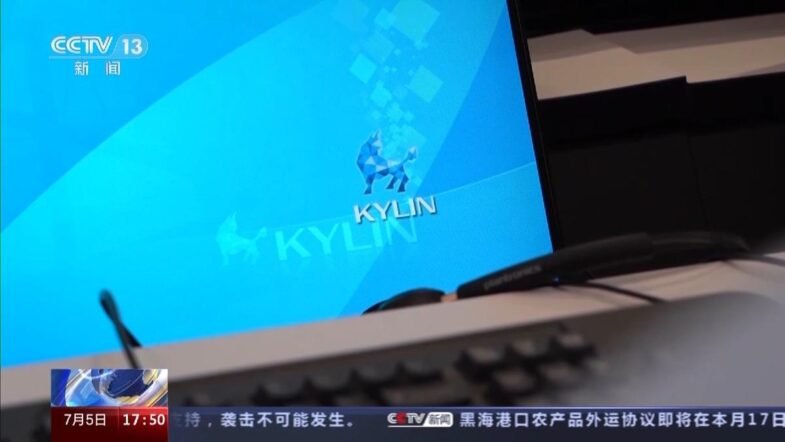China’s OpenKylin 1.0 version has finished the selection and upgrade of more than 20 core components, aiming to close the technological gap with Western technologies.

The US is making an effort to stop China from gaining access to important tech sectors, like computer chips. In the fields of quantum information systems, subsea cables, and AI, China is vying for supremacy. China’s first open-source desktop operating system, OpenKylin 1.0, represents a breakthrough in independent software development.
China’s OpenKylin 1.0 version has finished the selection and upgrade of more than 20 core components, aiming to close the technological gap with Western technologies. Industry experts believe that this action will help China become self-sufficient in science and technology.
“Prior to the 1.0 version, we experimented with several different iterations, gradually fostering the capacity to self-develop desktop operating systems. We anticipate that the new iteration will draw in more developers, “said Zhu.
According to a statement sent by Kylinsoft to the Global Times, a community of 3,867 developers, 74 special interest groups, and 271 companies created the Linux-based operating system.
A leading Chinese software company, Kylinsoft, started the first root community of the Desktop Operating System OpenKylin last year to hasten the growth of China’s open-source ecosystem. The Chinese software company provides operating systems for personal computers and mobile phones that are extensively used in industries like customs, energy, and financial institutions.
It also holds the largest market share in the domestic Linux OS segment. The launch represented the nation’s most recent effort to create domestic software and lessen reliance on foreign technologies.
Homegrown operating systems are seen as essential for acting as a pillar for advancing the development of new infrastructure and the digital economy.
Chinese Academy of Engineering academician Ni Guangnan stated that in order to lessen reliance on Western technologies, China’s digital economy has been gradually moving towards a new phase of in-depth application and scale development.
According to Ni, the release of OpenKylin 1.0 demonstrates the development and innovation in domestic OS ecology. To combat foreign hegemony, he advises authorities to create “China’s system.” When the US is pushing for decoupling and focusing on hardware and semiconductors, Ma Jihua issues a warning about potential OS threats.
Since many important technologies, including operating systems, are connected to national information security, the launch of OpenKylin 1.0 is consistent with China’s trend of promoting independent technologies, according to Ma.
According to statistics provider Statcounter, Windows has a 68.15 percent market share for desktop operating systems worldwide, while Linux has a 3.08 percent market share. To learn more, read the complete Global Times article.
It’s possible that the Chinese OS won’t soon pose a threat to Windows or Apple’s operating systems. China, however, might demand that its own OS be preloaded on Apple and Android devices due to EU regulations that permit sideloading and competing software. If tensions between the US and China rise, in particular, this could result in China’s own OS gaining a larger market share for computers, services, and mobile devices.
